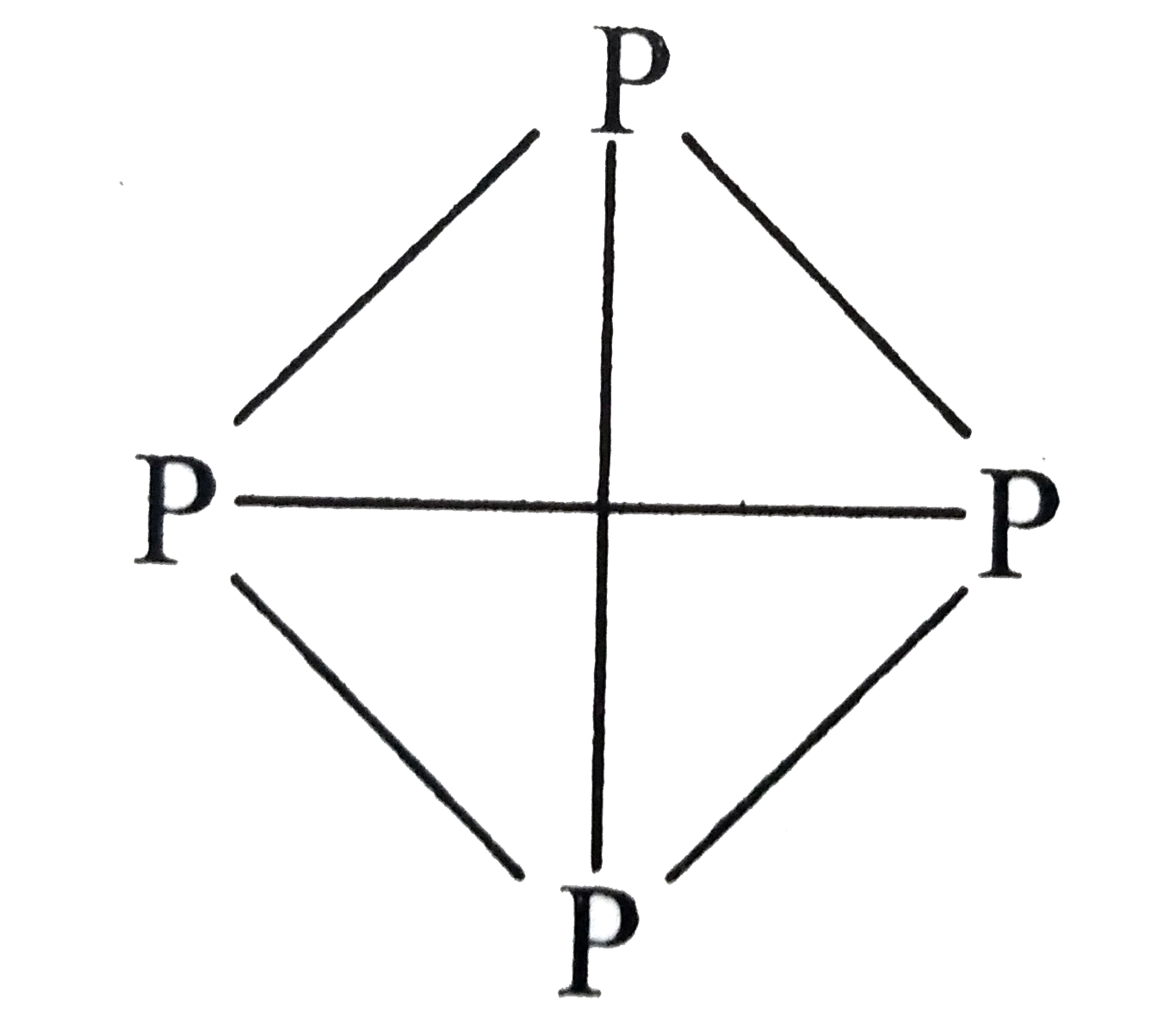Complete Solutions to CHEMISTRY SECTION-2 Part-C ( Integer type ) of chapter TEST PAPERS of Class 12 book with complete answers and questions
| Class 12 | MATHS |
| Chapter | TEST PAPERS |
| BANSAL | CHEMISTRY SECTION-2 Part-C ( Integer type ) |
| Number Of Questions | 10 |
| Academic Year | 2023-24 |
White phosphorous is a tetra - atomic solid `P_(4)(s)` at room temperature .

Find average (P-P) bond enthalpy in kJ/mol.
Given : `DeltaH_("sublimation") " of " P_(4) (s)=59 kJ/mol`
`DeltaH_("atomisation") " of " P_(4)(s)=1265 kJ/mol`
View SolutionHow much heat ( in kcal ) will be required at constant pressure to form 1.28 kg of `CaC_(2)` from CaO(s) & C(s) ?
Given: `Delta_(f)H^(@)(CaO,s)=-152 kcal/mol. `
`DeltaH_(f)(CaC_(2),s)=-14 kcal/mol`
`DeltaH_(f)(CO,g)=-26 kcal/mol`
View SolutionWhat amount of heat ( in kJ) is released in forming 31.2 g `AsH_(3)` by the following reaction ?
(Given : At. Wt. As=75, H=1)
Given :`2As(s) +3H_(2)(g) to 2AsH_(3)(g)" "DeltaH=-780 kJ/mol`
View SolutionCalculate magnitude of `DeltaH` in calorie for 1 mol of an ideal gas undergoing adiabatic reversible process from 8 atm, 300 K to 2 atm. (Given : `gamma=2, R=2Cal//K//mol`)
View Solution2 mole of an ideal gas is expanded from (2 bar, 1L) to 1 bar isothermally. Calculate magnitude of minimum possible work in the change ( in Joules). (1 bar =100 J)
[Given: 1 bar L=100 J]
View SolutionA thermodynamic study of `AlCl_(3(s))` is done to determine its standard enthalpy of formation `(Delta_(f)H_(AlCl_(3)(s))^(@))` from the following information.
(i) `AlCl_(3)(s)s to AlCl_(3) `[aq. In 4.0 M-HCl(aq)],`DeltaH^(@)=-180 kJ`
(ii) ` Al(s)+3HCl (aq.,4.0M) to AlCl_(3)` [aq. in 4.0 M-HCl(aq.)]`+(3)/(2)H_(2)(g),DeltaH^(@)=-700kJ`
(iii) ` (1)/(2) H_(2)(g) +(1)/(2)Cl_(2)(g) to HCl`(aq. , 4.0 M), `DeltaH^(@)=-158 kJ`
Determine `|Delta_(f)H_(AlCl_(3)(s))^(@)|` in kJ from these data:
View SolutionAt 500 kbar pressure density of diamond and graphite are `3 "g"//"cc" and 2 "g"//"cc"` respectively, at certain temperature T. Find the value of |DeltaH-DeltaU|`("in kJ"//"mole")`for the conversion of 1 mole of graphite 1 mole of diamond at 500 kbar pressure.
(Given : `1 "bar" = 10^(5) "N"//"m"^(2))`
View SolutionFor the reaction : `N_(2)(g)+3H_(2)(g) to 2NH_(3)(g),DeltaH=-24KCal " at " 427^(@)C` and 200 atm. Calculate magnitude of internal energy change ( in Kcal `DeltaU`), if 168 gm `N_(2)` gas and 30 gm `H_(2)` gas are allowed to react completely (100% reaction yield ) to form `NH_(3) gas at `427^(@)C` and 200 atm.
View SolutionCalculate the magnitude of ring strain energy in (kJ/mol) of cyclopropane from the following data
`Delta_(f)H[C_(3)H_(6)(g)]=55,Delta_(f)H[C(g)]=715,Delta_(f)H[H(g)]=220,`
`BE(C-C)=355,BE(C-H)=410` ( all in kJ/mol ) :
View SolutionCalculate the entropy change in system if 2 mole of methane undergoes complete combustion at 300 K from the following data.
Given data `:DeltaH_("cumbustion")^(@) CH_(4)(g)=-900kJ,DeltaG_(f)^(@)CH_(4)(g)=-40,DeltaG_(f)^(@)(H_(2)O)(l)=-120, DeltaG_(f)^(@)CO_(2)(g)=-400kJ//mol`
Instruction:- If your answer is -ve, then wire double the magnitude as your final answer
For example : If `DeltaS_("surr")=+20J/K` then write your answer as 20 but if `DeltaS_("surr")=-20` then write your answer as 40
Express your answer in J/K.
View Solution
CHEMISTRY SECTION-2 Part-C ( Integer type ) questions and complete solutions for chapter TEST PAPERS of BANSAL MATHS (HINGLISH) of Class 12
All Exercises from BANSAL Class 12 MATHS TEST PAPERS
- CHEMISTRY
- CHEMISTRY SECTION - 2 [PARAGRAPH TYPE]
- CHEMISTRY SECTION - 2 PART A [SINGLE CORRECT CHOICE TYPE]
- CHEMISTRY SECTION - 2 [MULTIPLE CORRECT CHOICE TYPE]
- CHEMISTRY SECTION-2 PART-A [MULTIPLE CORRECT CHOICE TYPE]
- CHEMISTRY SECTION-2 PART-A [SINGLE CORRECT CHOICE TYPE]
- CHEMISTRY SECTION-2 PART-C [INTEGER TYPE]
- Chemistry SECTION-2 (PART-A) [PARAGRAPH TYPE]
- CHEMISTRY SECTION-2 Part-A ( Multiple correct choice type )
- CHEMISTRY SECTION-2 Part-A ( paragraph type )
- CHEMISTRY SECTION-2 Part-A ( Reasoning type )
- CHEMISTRY SECTION-2 Part-A ( single correct choice type )
- CHEMISTRY SECTION-2 Part-B ( Matrix type )
- CHEMISTRY SECTION-2 Part-C ( Integer type )
- Chemistry, SECTION-2 (PART-A) [MULTIPLE CORRECT CHOICE TYPE]
- Chemistry, SECTION-2 (PART-A) [REASONING TYPE]
- Chemistry, SECTION-2 (PART-A) [SINGLE CORRECT CHOICE TYPE]
- Chemistry, SECTION-2 (PART-B) [MATRIX TYPE]
- Chemistry, SECTION-2 (PART-C)
- Math
- MATHEMATICS
- Mathematics SECTION-3 (PART-A) [COMPREHENSION TYPE]
- Mathematics SECTION-3 (PART-A) [RESONING TYPE]
- Mathematics SECTION-3 (PART-A) [SINGLE CORRECT CHOICE TYPE]
- Mathematics, SECTION-3 (PART-A) [MULTIPLE CORRECT CHOICE TYPE]
- Mathematics, SECTION-3 (PART-B) [MATRIX TYPE]
- Mathematics, SECTION-3 (PART-C)
- Mathenatics
- MATHS
- MATHS SECTION - 2 [MULTIPLE CORRECT CHOICE TYPE]
- MATHS SECTION - 2 PART A [PARAGRAPH TYPE]
- MATHS SECTION - 2 PART A [SINGLE CORRECT CHOICE TYPE]
- MATHS SECTION-3 PART-A [SINGLE CORRECT CHOICE TYPE]
- MATHS SECTION-3 PART-B [MULTIPLE CORRECT CHOICE TYPE]
- MATHS SECTION-3 PART-C [INTEGER TYPE]
- MATHS SECTION-3 Part-A [ comprehension type ]
- MATHS SECTION-3 Part-A [ Multiple correct choice type ]
- MATHS SECTION-3 Part-A [ single correct choice type ]
- MATHS SECTION-3 Part-A [Reasoning type ]
- MATHS SECTION-3 Part-B[ Matrix type ]
- MATHS SECTION-3 Part-C[ Integer type ]
- PHYSICS
- PHYSICS SECTION - 1 [MULTIPLE CORRECT CHOICE TYPE]
- PHYSICS SECTION - 1 PART-A [SINGLE CORRECT CHOICE TYPE]
- PHYSICS SECTION - 1 PART-B [MULTIPLE CORRECT CHOICE TYPE]
- PHYSICS SECTION - 1 PART-C [INTEGER TYPE]
- PHYSICS SECTION - 1 [PARAGRAPH TYPE]
- PHYSICS SECTION-1 Part-A ( Multiple Correct Choice type )
- PHYSICS SECTION-1 Part-A (Comprehension type )
- PHYSICS SECTION-1 Part-A (Reasoning type )
- PHYSICS SECTION-1 Part-A (Single Correct choice Type )
- PHYSICS SECTION-1 Part-B [Matrix Types]
- PHYSICS SECTION-1 Part-C (Integer Type )
- Physics, SECTION-1 (PART-A)
- Physics, SECTION-1 (PART-A) [COMPREHENSION TYPE]
- Physics, SECTION-1 (PART-A) [MULTIPLE CORRECT CHOICE TYPE]
- Physics, SECTION-1 (PART-B) [MATRIX TYPE]
- Physics, SECTION-1 (PART-C)